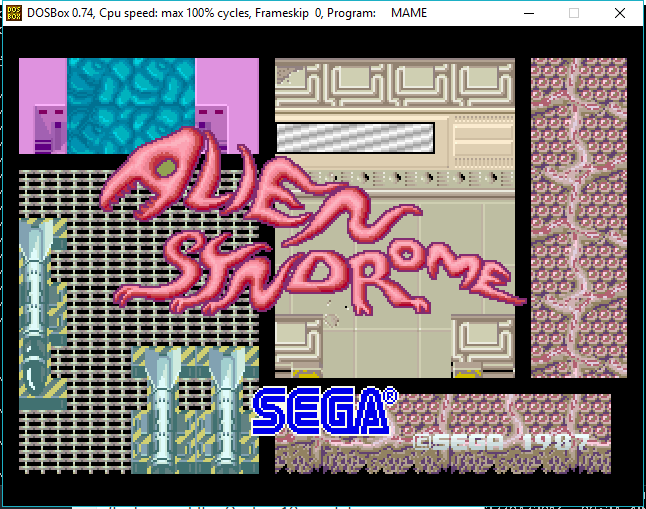I was kind of surprised to find it.
While I was looking for System16 stuff, I found the first version of MAME to include the UAE 68000 core starting in release MAME 28, although System16 emulation itself didn’t appear until MAME 33b3, but not playable until MAME 33b4.
So what does it mean? Â Well at the time the UAE core was the way to go. Â However from looking at the MAME source, the UAE core that they were using from System16 was already generated, while UAE still included the build68k program to parse the tables, and generate the 68000. Â Instead they were editing the outputted C. Â UAE wasn’t GPL until version 0.7(something), 0.7.6 for sure, so I don’t know why they weren’t using it from the source.
Eventually starting in MAME 35b2, the core was replaced with MUSASHI , so Among their reasons for dumping the early UAE CPU core was this laundry list:
- New 68000 C core. For testing purposes, this is also being used in the DOS
version instead of the asm core. [Karl Stenerud]
Differences:
1. Faster. This code is, barring ram fetch time, almost twice as fast as the existing C core in MAME. I’ve done extensive speed profiling on both engines. The only problem now is the slow memory access in MAME due to bankswitching et al.
2. Emulation more correct. I found many bugs in the MAME engine (and many, many more in mine for that matter) when I pitted them head-to-head. I have run random instructions from each opcode class at least 10 million times, comparing the resultant CPU states, and have left it running random instructions for 1 billion iterations. In every case, I have adhered to the specs defined in M68000PM/AD REV. 1.
3. Disassembler is correct. The current M68000 disassembler in mame has a tendency to disassemble instructions that have an invalid EA mode.
4. Cycle counting is 99.9% correct. The only instructions which don’t have correct cycle counts are divs, divu, muls, mulu, and they’re not worth counting correctly. (I’m not about to waste emulation time counting 0-1 and 1-0 sequences).
5. > 32 bit friendly. I’ve taken care to ensure maximum portability without sacrificing speed. The result is conditional compiling dependant on your architecture. I’ve also implemented and tested a compatible solution for architectures that lack 8, 16, or 32 bit signed storage types.
6. The code is carefully laid out to be readable.
Also in MAME 35b4 added in was emulation of the NEC uPD7759 chip for speech, fleshing out the System16 emulation.
To compile these ancient versions, and inbetween I was using my Candadian cross DJGPP GCC 4.12 Win32 cross compiler. Â For Allegro I’ve always found it builds far easier using GCC 2.7.2.1, a vintage compiler from back in the day I could just run in DOSBox.
Obviously with today’s machines, these ancient versions of MAME run fine on DOSBox! Â It’s really amazing in the scope of emulators running emulators.

